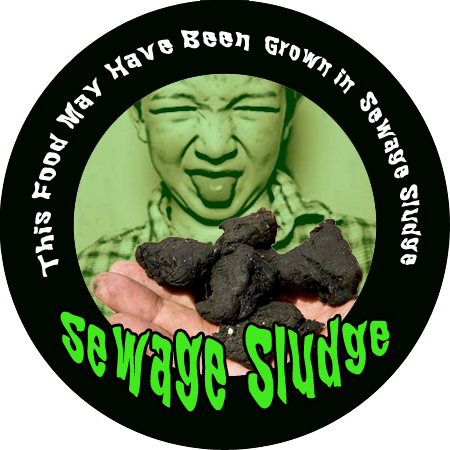Not Your Grandmother’s Night Soil: What You Need To Know About FDA Rules on Soil and Food Contamination
By Darree Sicher
1938: Hitler seizes control of Germany, Benny Goodman plays the first jazz concert at Carnegie Hall, Superman first appears in DC Comics and Teflon, instant coffee and Xerox copying machines are all invented. AND, the Food Safety Act becomes law in the USA. Forward to 2014: America’s food safety …. where’s Superman when you need him?
Every year 48 million Americans – 1 in 6 – get sick from food-borne illnesses. According to the Centers for Disease Control and Prevention, 128,000 citizens are hospitalized annually and 3,000 die from our national “food poisoning” problem. The Food and Drug Administration (FDA) estimates that 16.8% of our fresh-cut fruits and vegetables are contaminated. What if curbing our national food poisoning problems could be as simple as to stop using our modern sewage sludge waste as a fertilizer? If you are what you eat, you can make a difference – the FDA is accepting comment on environmental impacts to the safety of our nation’s food supply.
Does 8 million Tons of Sewage Sludge Equal 48 Million Sick?Forty-eight million people contract some form of food poisoning annually. Meanwhile, at least 8 million tons of sewage sludge/biosolids “fertilizer” from waste water treatment plants is land applied annually on farms, athletic fields, parks and sold as bagged fertilizer. Roughly 60% of U.S. sewage sludge collected from homes, industries, businesses and hospitals at municipal waste water treatment plants is land applied. Exiting water effluence from waste water treatment plants is “recycled” as agricultural water for crop irrigation or reintroduced into rivers and streams. For many, a link between the pathogens, pharmaceuticals, chemicals and carcinogens found in both the sewage sludge and the water effluence and the poisoning of America’s food, water and soil falls into the realm of common sense.
Unfortunately, politics have played a major role in maintaining inadequate standards to ensure the health and safety of our food and water supply and in re-evaluating the transfer of our toxic waste to the very source of our sustenance. The bureaucratic response to concerns of health and safety risks echos industry-speak: no “proof” of contamination. In spite of bureaucratic resistance, real science proves otherwise. Even the most scientific simpleton can link soil and water health with the health of your food supply – the plant has no choice, it must soak up what is in the soil and water where it is growing. Solid science supports this obvious connection, which is why fortunes are made applying “nutrients” to the soil. Soil and water contamination will also impact the quality and safety of the food supply. The environment IS the soil and water and the contamination impact on the land that grows our food and filters our water directly impacts our health and safety. Is it possible that our explosion in food and water contamination is a direct result of using our modern waste and wastewater as a “fertilizer” to grow our food?


 The Center for Media and Democracy (CMD)
The Center for Media and Democracy (CMD) 




